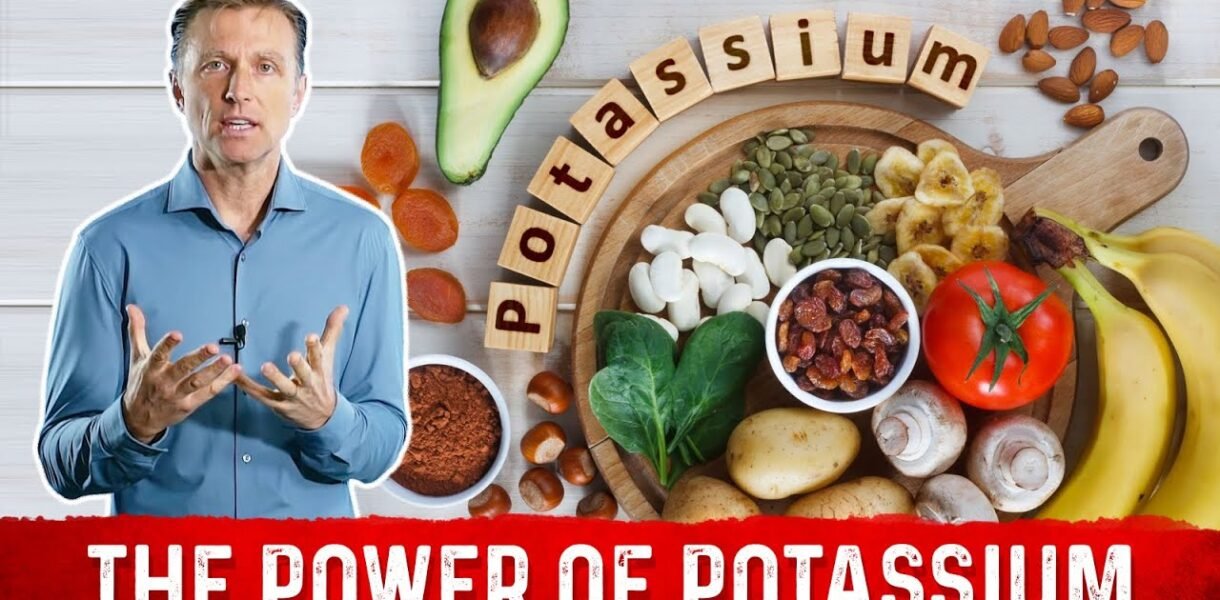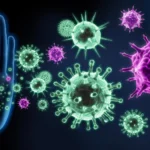Table of Contents
Are you tired of feeling sluggish and lacking energy throughout the day? Do you struggle to stay focused and motivated? If so, you may be deficient in potassium, a vital mineral that plays a crucial role in maintaining healthy energy levels and overall well-being. In this article, we’ll explore the science behind potassium’s role in boosting energy and improving physical performance. We’ll also discuss the benefits of incorporating potassium-rich foods into your diet and provide tips for increasing your potassium intake. So, without further ado, let’s dive into the world of potassium and discover how it can help you feel more energized and alive!
Today I wanna talk about why potassium makes you energetic and why if you’re deficient you become fatigued .
What is the sodium-potassium pump?
Now this topic is quite fascinating because it relates to a pump in all of your cells of the body called the sodium potassium pump .
And I’m gonna dive in a little bit just to explain what that is and why that is so significant .
It has to do with this .
Out of all the energy that your body uses to digest , to grow hair , to create motion with muscles and the energy it takes to run all the enzymes .
This little sodium pump takes the lion’s share of energy .
Nearly 30% of all the energy that is utilized from your body , from the food that you consume , is allocated to this 1 little pump .
Of course these pumps are in all the cells , but it’s interesting that your body is giving that much energy to this 1 specific function and many people don’t really even know what it is .
They’ve never even heard about it before .
The definition of this pump
Now the definition of the word pump is slightly different than the sump pump that you have in your basement .
It’s a biological definition .
The definition of this pump is a mechanism for the movement of electrolytes through the cell membrane .
So you have this membrane , this cell wall which is very , very thin .
It’s like 2 molecules thick .
What are electrolytes?
And electrolytes are electrically charged chemicals or in this case , electrically charged minerals .
And we’re talking about sodium and potassium .
Very simply , the main goal of this pump is to keep sodium going out and potassium going in .
In other words , to keep the potassium inside the cell and keep the sodium outside the cell .
That’s its goal .
Now when you have different concentrations of electrically charged minerals inside the cell versus outside the cell , you basically create a battery .
The purpose of this pump
So the purpose of the sodium potassium pump is to maintain electrical charge so that cell can act as a battery .
So now the question is what is the significance of having your cell maintain electrical charge ?
What is it actually doing ?
And that’s gonna be the next topic .
It has everything to do with 4 things primarily .
| Topic | Information |
|---|---|
| What is the sodium-potassium pump? | A pump in all cells of the body that maintains healthy energy levels and overall well-being. It is responsible for the movement of electrolytes through the cell membrane. |
| Definition of the sodium-potassium pump | A mechanism for the movement of electrolytes through the cell membrane. |
| Electrolytes | Electrically charged minerals that are essential for maintaining healthy energy levels and overall well-being. |
| Primary functions of the sodium-potassium pump | 1. Supports neurons in transmitting signals 2. Works with calcium to help muscles contract and relax 3. Helps establish correct pH 4. Maintains fluid control |
| What happens when you’re low in potassium? | 1. Nerve problems 2. Muscle weakness and cramps 3. Fatigue 4. High blood pressure 5. Swelling in the body |
| Causes of low potassium | 1. Dietary deficiency 2. Diuretics 3. Vomiting and diarrhea 4. Diabetes with high insulin 5. Consuming high amounts of sugar or a high-carb diet 6. Stress, injury, or trauma |
| How keto can cause a potassium deficiency | When you lower your carbs and don’t need the quantity of stored sugar anymore, sugar actually stores water or fluid. So, when you cut down the carbs, you lose the fluid, and therefore, lose potassium. |
| What to do if you feel tired and weak on keto | Beef up on potassium and some sodium. |
The four primary functions
There’s other things but the 4 primary functions are this , to support neurons in helping the nerves transmit signals .
Communication through the body .
And I’m talking about all the nerves , including nerves in your brain , the central nervous system .
Also to work with calcium to help the muscles contract and relax .
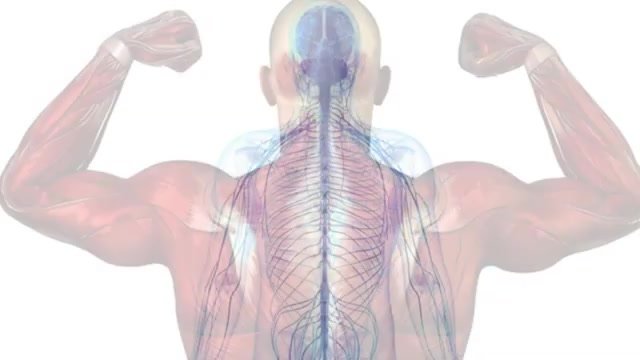
So we have nerve and we have muscle function .
Also to help the cell establish the correct pH and help maintain fluid control .
As you know , if there’s a problem with , sodium for example , if it’s you’re retaining too much sodium , you’re gonna actually the cells are gonna swell too much .
So the balance of potassium and sodium is very very important in to maintain the proper volume of fluid through the body .
what happens when you’re low in potassium .
And by the way , you also need sodium for this pump to work too , but you need 4 times as much potassium than sodium .
And if we look at sodium versus potassium , more people are deficient in potassium than they are sodium
So what happens when you’re low in potassium ?
Well , the nerves suffer .

Why ?
Because we’re talking about the nerves in your brain .
You start getting brain fog .
Also you can get slow reflexes , tingling in the nerves , numbness in the nerves , abnormal heart rhythm because the sodium potassium pump is located in the pacemaker of the heart which controls the rhythm of the heart .
So it affects the brain as in brain fog or you’re gonna have motor nerve problems to the muscle which could affect the ability to move and and actually maintain a certain motion for a period of time .
So you might get tired a lot faster because you just don’t have the sodium potassium pump working effectively throughout the entire body .
Number 2 has to do with the ability for the muscles to contract and relax .
That can show up in cramps .
That can show up in fatigue , as in muscle fatigue .
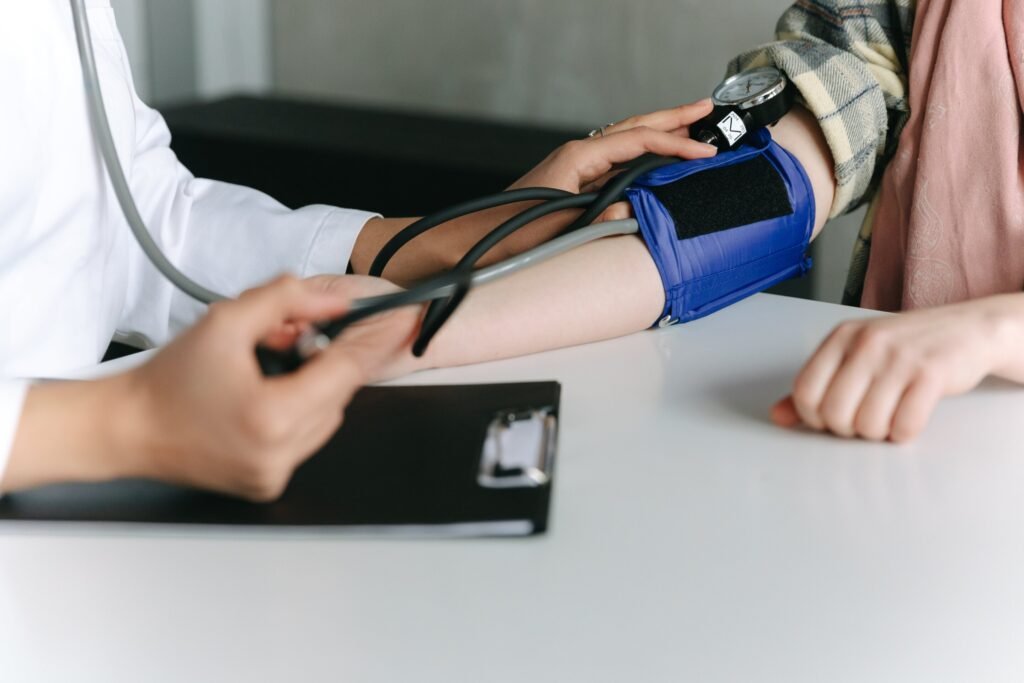
It can show up in muscle aches , muscle stiffness , tremors , constipation because your colon is actually smooth muscle and that could be a problem , weakness in general , and high blood pressure because your arteries have a certain type of muscle that can be dysfunctional .
And then we have pH .
If you’re deficient in potassium , the body has a tendency to be more acid .
And then fluid control .
If there’s a potassium deficiency , you can get swelling in the body .
I mean how many people have way too much sodium versus potassium and their ankles are just swollen ?
When you consume foods higher in potassium , swelling goes away .
So I just wanted to show you the the the connection between what this sodium potassium pump controls and the effects that it can create if it if you’re missing the actual raw material that makes up that pump .
Now let’s go into this last part right here .
What causes low potassium
How do people become deficient in potassium ?
Dietary , they don’t consume enough foods high in potassium .
The foods that have the most potassium would be leafy greens or avocados .
So people just don’t consume enough .

You would have to consume 7 to 10 cups of salad or vegetables to get close to your RDAs which is 47100
And the reason I’m bringing this up is because potassium is the hardest to get .
It’s very easy to consume sodium but it’s not as easy to get potassium from your diet .
If you’re in diuretics , that could cause a potassium deficiency .
Vomiting , diarrhea can deplete you of potassium .
If you’re a diabetic and you have high insulin , that can create a potassium deficiency .
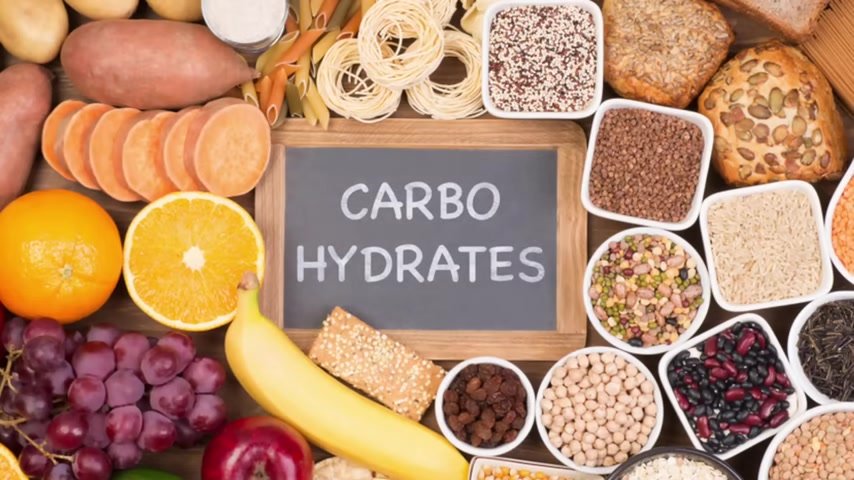
If you consume sugar or you’re doing a high carb diet that will deplete potassium as well .
The more stress you go through , the more injury you have , the more trauma , the more the body will dump potassium .
And lastly , I wanted to talk about this 1 last thing , keto .
What ?
That’s right .
Going on a ketogenic diet can cause your body to require more potassium .
Why keto can cause a potassium deficiency
Because when you go on a ketogenic diet and you lower your carbs and you don’t need the quantity of stored sugar anymore , sugar actually stores water or fluid .
So 1 sugar molecule will store almost 3 molecules of water .
So basically the more sugar you consume , the more glycogen you have , the more fluid that you’re retaining , like you’re a sponge of fluid .
So when we cut down the carbs you lose the fluid .
And because these 2 minerals , sodium potassium work together , you’re gonna lose not just sodium but you’re gonna lose potassium .
You’re gonna end up with lower amount of potassium .
If you’re already deficient in potassium , you’re gonna be even more deficient .
And this is why people get the keto fatigue .
This is why they might get cramps .
This is why they might get side effects when they go on a ketogenic diet .

But not if they’re doing the healthy version of keto that I recommend which is basically consuming foods give you more of the nutrients that you need .
Potassium is important .
The b vitamins , a little bit more , sea salt would be very beneficial .
What to do if you feel tired and weak on keto
So if you started the ketogenic diet and you feel tired and you feel weak , all you have to do is beef up , no pun intended , the potassium and some sodium and that should go away pretty quick .
So that was a very long explanation of why potassium makes you energetic but I think it was important and I think it’s actually incredibly interesting .
key Points
- The sodium-potassium pump is a pump in all of the cells of the body. Nearly 30% of all of the energy that is utilized from your body from the food you consume is allocated to this one pump in all of the cells.
- The definition of this pump: A mechanism for the movement of electrolytes through the cell membrane.
- Electrolytes are electrically charged chemicals or, in this case, the minerals sodium and potassium.
- The main goal of this pump is to keep sodium going out of the cell and potassium going in the cell.
- When you have different concentrations of electrically charged minerals inside the cell versus outside of the cell, you basically create a battery. The purpose of the sodium-potassium pump is to maintain an electrical charge so that the cell can act as a battery.
The four primary functions:
- Supports neurons in helping the nerves transmit signals
Low potassium symptoms:
• Brain fog
• Slow reflexes
• Tingling
• Numbness
• Abnormal heart rhythm - Works with calcium to help the muscles contract and relax
Low potassium symptoms:
• Fatigue
• Cramps
• Muscle aches/stiffness
• Tremors
• Constipation
• Weakness
• HBP - To help the cell establish the correct pH
Low potassium symptoms:
• The body is more acid - To help maintain fluid control
Low potassium symptoms:
• Swelling
Potassium deficiency causes:
• Dietary (not consuming foods high in potassium like leafy greens or avocados)
• Diuretics
• Vomiting/Diarrhea
• Diabetes
• Sugar/High carb diets
• Stress
• Keto
- If you started the ketogenic diet and you feel tired and weak, you need to consume more potassium and sodium.
DATA
Download My FREE PDF: Easy Keto and Intermittent Fasting
FAQ
Why does potassium make you energetic?
- Potassium plays a crucial role in maintaining proper cell function and nerve transmission, which are essential for energy production in the body
Why does potassium make me feel better?
- Potassium helps maintain fluid balance in the body, which can contribute to an overall sense of well-being. It also supports the functioning of the kidneys, heart, muscles, and nervous system, which can positively impact mood and energy levels [1].
Does potassium help with tiredness?
- Yes, potassium is involved in energy production and muscle function. Adequate potassium levels can help combat fatigue and promote overall energy levels [1].
Is potassium an energy source?
- While potassium itself is not an energy source, it plays a vital role in energy production within the body. It helps maintain proper cell function and supports the conversion of food into energy [1].
Does high potassium make you sleepy?
- High potassium levels are not typically associated with sleepiness. However, imbalances in potassium levels, either too high or too low, can disrupt normal bodily functions and potentially lead to symptoms such as fatigue or muscle weakness. It is important to maintain a balanced potassium level for optimal health [1].
Dangers of potassium supplements:
- Potassium supplements should be taken under the guidance of a healthcare professional, as excessive potassium intake can be dangerous, especially for individuals with kidney problems. High levels of potassium in the blood, known as hyperkalemia, can lead to serious health complications, including heart palpitations, chest pain, and breathing difficulties [1].
What does high potassium do for the body?
- High potassium levels, known as hyperkalemia, can disrupt normal bodily functions. It can affect nerve and muscle function, potentially leading to symptoms such as muscle weakness, heart palpitations, and irregular heart rhythms. It is important to maintain a balanced potassium level for optimal health [1].
What are 5 benefits of potassium?
- Potassium offers several health benefits, including:
- Maintaining fluid balance in the body.
- Supporting proper muscle function.
- Regulating blood pressure.
- Promoting heart health.
- Assisting in nerve transmission and overall cell function [1].
How much potassium does a woman need daily?
- The recommended daily intake of potassium for adult women is 2,600 mg/day [1].
How much potassium in a banana?
- A medium-sized banana contains approximately 422 mg of potassium [1].
What does potassium do for the heart?
- Potassium plays a crucial role in maintaining proper heart function. It helps regulate the electrical activity of the heart, ensuring a regular heartbeat. Adequate potassium levels can help support heart health and reduce the risk of cardiovascular diseases [1].
Potassium-rich foods:
- Including potassium-rich foods in your diet can help ensure adequate intake. Some examples of potassium-rich foods include:
- Dried apricots (1,101 mg per half-cup) [1]
- Cooked lentils (731 mg per cup) [1]
- Dried prunes (699 mg per half-cup) [1]
- Mashed acorn squash (644 mg per cup) [1]
- Boiled soybeans (443 mg per half-cup) [1]
- Bananas (422 mg per medium-sized banana) [1]
- Canned kidney beans (607 mg per cup) [1]
- Orange juice (496 mg per cup) [1]
- 1% milk (366 mg per cup) [1]
Learn more:

